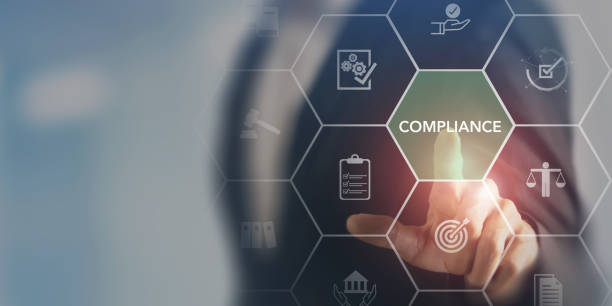Prove Compliance
Proving compliance with cybersecurity is crucial for companies to meet regulatory requirements,
gain customer trust, manage risks, and gain a competitive advantage. Guardian’s
comprehensive approach includes documentation, audits and assessments, reporting, monitoring,
and employee training and awareness programs.
Compliance is Crucial

Achieve Compliance with Guardian
To achieve cybersecurity compliance, your organization must implement a comprehensive set of policies, procedures, and controls. This ensures that your IT infrastructure and data are secure, safeguarding against legal penalties, fines, and reputational damage.
